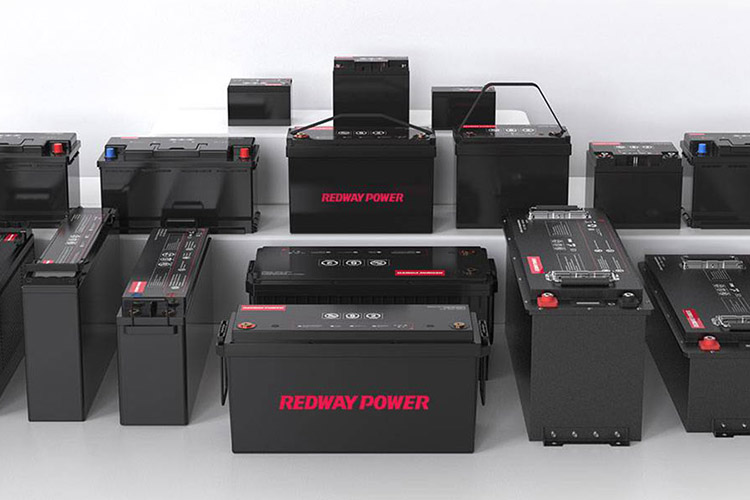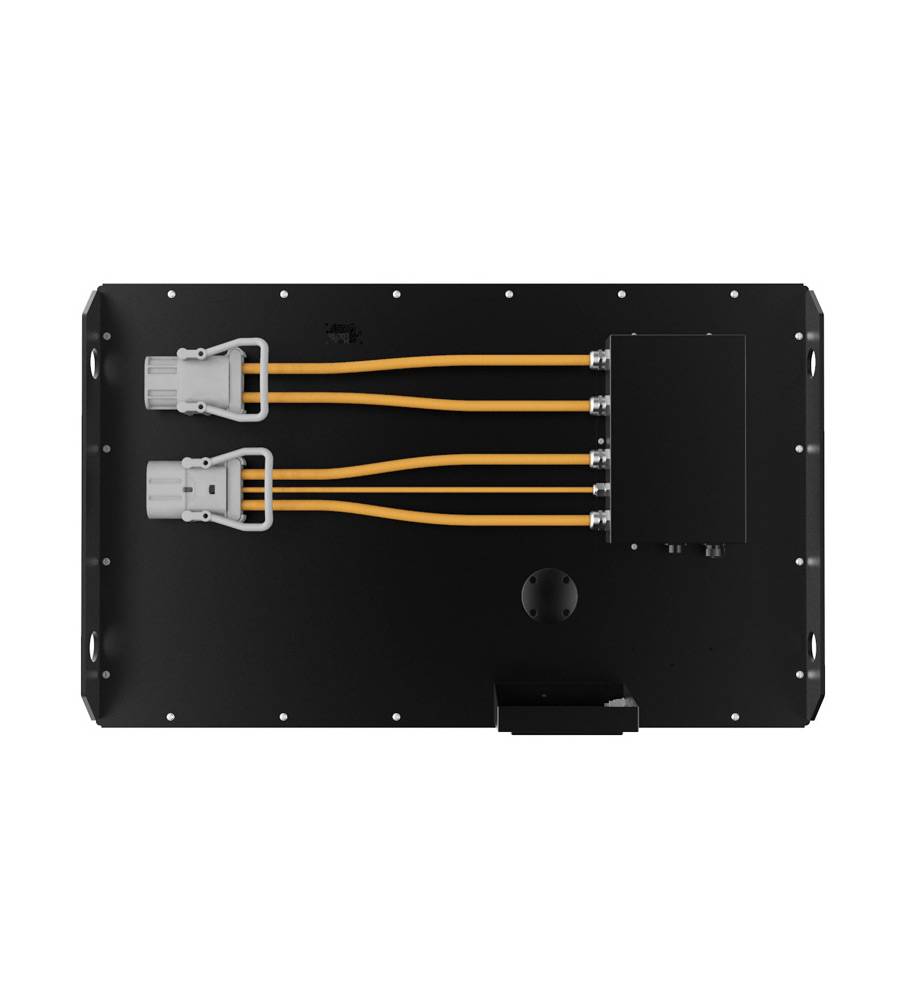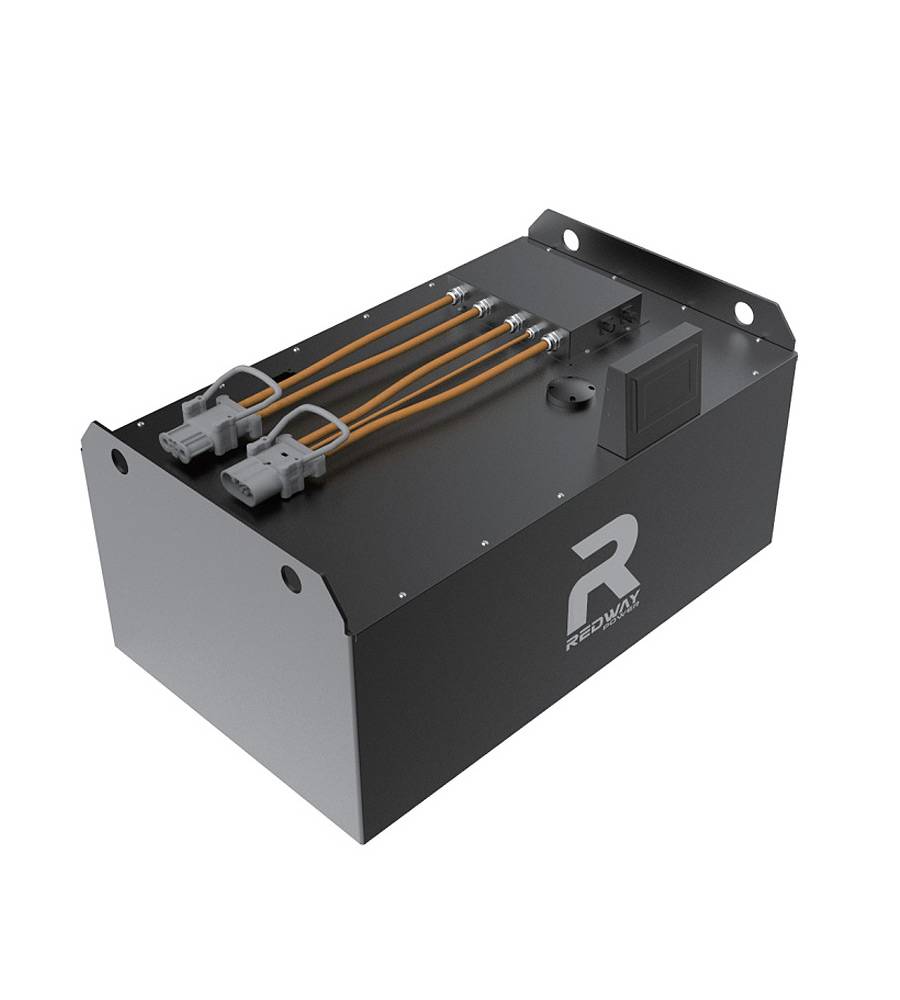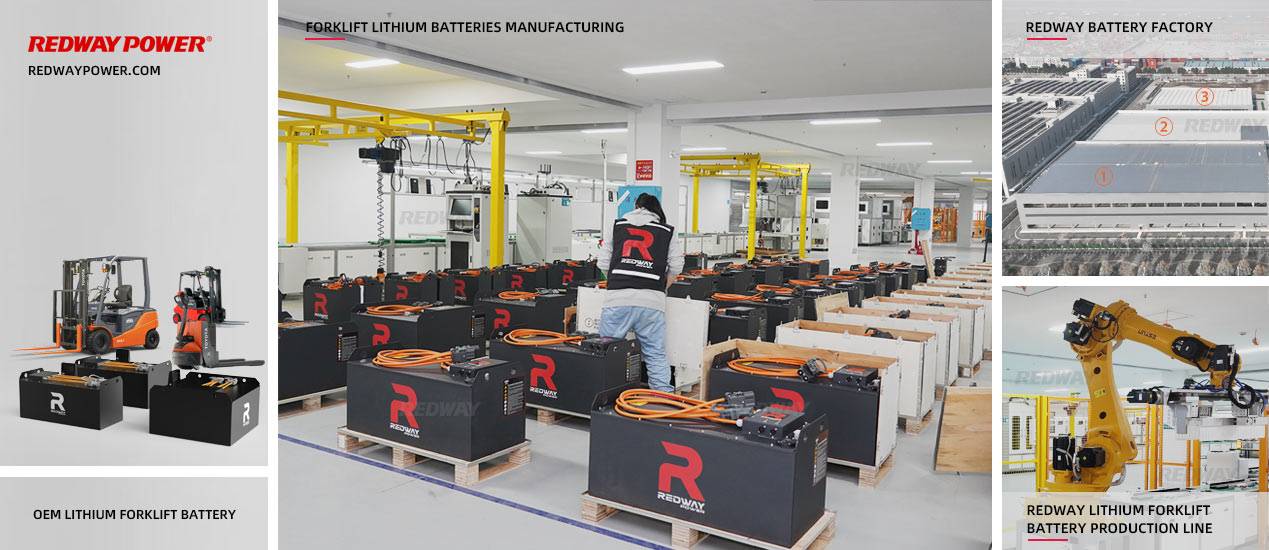Group 1: Certifications and Compatibility
1. What certifications do Chinese suppliers have for lithium forklift batteries?
Chinese suppliers of lithium forklift batteries typically hold certifications such as ISO 9001, CE, UL, RoHS, UN38.3, and IEC 62133. These certifications ensure high safety, quality, and environmental standards for global use.
2. How long is the lifespan of 51.2V 630Ah lithium forklift batteries?
51.2V 630Ah lithium forklift batteries can last between 3,000 to 5,000 charge cycles, which translates to around 8-10 years of service with proper maintenance.
3. Are these batteries compatible with all forklift brands/models?
While 51.2V 630Ah lithium forklift batteries are compatible with most forklift brands, it is important to check voltage requirements and battery compartment dimensions for specific models.
4. What safety standards govern lithium forklift battery production in China?
Lithium forklift batteries in China are governed by safety standards like GB/T 31485-2015, IEC 62133, and UN38.3, which ensure the safe operation, transport, and environmental compliance of the batteries.
5. Do Chinese suppliers offer customized voltage/capacity lithium batteries?
Yes, Chinese suppliers provide customized lithium forklift batteries, including tailored voltage, capacity, and configurations, to meet specific operational and space requirements of different forklift models.
6. How do Chinese lithium battery prices compare globally for forklifts?
Chinese lithium forklift batteries are often more cost-effective compared to Western manufacturers due to lower production costs. Bulk orders can offer significant savings, making them competitive on a global scale.
Group 2: Specifications and Applications
1. What are the key specifications of 48V 600Ah forklift batteries?
48V 600Ah forklift batteries have a voltage of 48V and a capacity of 600Ah, storing 28.8 kWh of energy. They typically provide high energy efficiency and have a lifespan of 3,000-5,000 cycles.
2. How does lithium technology benefit high-capacity forklift batteries?
Lithium technology offers longer cycle life, faster charging, higher energy density, and reduced weight. This results in better efficiency, lower maintenance, and improved performance for high-capacity forklift batteries.
3. What applications suit 48V 600Ah lithium forklift batteries?
48V 600Ah lithium forklift batteries are ideal for large warehouses, manufacturing plants, and distribution centers. These applications require extended operation times and high efficiency, making lithium batteries a suitable choice.
4. What are wholesale MOQs for 48V 600Ah lithium batteries?
The minimum order quantities (MOQs) for 48V 600Ah lithium forklift batteries generally range from 5 to 10 units for wholesale orders, depending on the supplier.
5. What safety certifications do these lithium batteries require?
48V 600Ah lithium forklift batteries require certifications like UL, IEC 62133, RoHS, and UN38.3 to ensure they meet global safety and transport standards.
6. How to maintain 48V 600Ah lithium batteries for longevity?
To maintain 48V 600Ah lithium batteries, avoid deep discharges, charge regularly, store in cool, dry conditions, and perform periodic checks to ensure optimal battery health and longevity.
Group 3: Performance and Cost Analysis
1. What are the key specifications of 48V 600Ah lithium forklift batteries?
48V 600Ah lithium forklift batteries provide a 48V output with 600Ah capacity, delivering 28.8 kWh of energy storage. They offer long battery life (3,000-5,000 cycles) and efficient performance for industrial forklifts.
2. Why choose lithium batteries over lead-acid for electric forklifts?
Lithium batteries last 3-5 times longer, charge faster, are more energy-efficient, lighter, and require less maintenance compared to lead-acid batteries, making them a superior option for electric forklifts.
3. How does 48V 600Ah lithium battery improve forklift performance?
The 48V 600Ah lithium battery enhances forklift performance by providing higher energy density, reducing downtime with faster charging, and extending operational hours due to its efficient power usage.
4. What safety features do custom lithium forklift batteries include?
Custom lithium forklift batteries are equipped with safety features like thermal management systems, overcharge protection, short circuit protection, and robust enclosures to ensure safe and reliable operation.
5. How long does a 48V 600Ah lithium battery last per charge?
A 48V 600Ah lithium battery can last for up to 8-12 hours per charge, depending on the workload, forklift model, and operational conditions.
6. What is the cost-benefit analysis of lithium vs traditional forklift batteries?
While lithium batteries have a higher initial cost, they offer long-term savings due to fewer maintenance needs, longer lifespan (3-5 times), and energy efficiency, making them more cost-effective over time.
Group 4: Efficiency and Safety
1. What is the capacity range for 51.2V forklift lithium batteries?
51.2V forklift lithium batteries generally range from 100Ah to 600Ah in capacity, allowing for flexible configurations to suit different industrial applications and forklift models.
2. How does 51.2V lithium battery improve forklift efficiency?
A 51.2V lithium battery boosts forklift efficiency by offering faster charging, longer runtime, reduced weight, and a longer lifespan, leading to higher productivity and lower operating costs.
3. What safety certifications do these industrial batteries have?
51.2V lithium forklift batteries are typically certified under UL, IEC 62133, RoHS, and UN38.3, ensuring they meet international safety, performance, and environmental standards.
4. What is the lifespan of a 51.2V lithium forklift battery?
A 51.2V lithium forklift battery typically lasts between 3,000 and 5,000 charge cycles, which translates to about 8-10 years of use with proper care and maintenance.
5. Are these batteries compatible with all industrial forklifts?
51.2V lithium forklift batteries are compatible with most industrial forklifts, but compatibility depends on the forklift's voltage requirements, battery compartment size, and system configuration.
6. How does temperature affect 51.2V lithium battery performance?
Extreme temperatures can affect the performance of 51.2V lithium batteries. High temperatures can reduce battery lifespan, while very cold temperatures can reduce capacity and charging efficiency.
Group 5: Lithium Battery Lifespan and Charging
1. What is the lifespan of 48V 630Ah lithium forklift batteries?
48V 630Ah lithium forklift batteries typically last 3,000 to 5,000 cycles, equivalent to 8-10 years, depending on operational conditions and maintenance practices.
2. How does lithium-ion compare to lead-acid in forklift batteries?
Lithium-ion batteries offer longer lifespans, faster charging, higher energy density, lighter weight, and require less maintenance than traditional lead-acid batteries, making them more cost-effective in the long run.
3. What safety features do 48V 630Ah lithium forklift batteries have?
48V 630Ah lithium forklift batteries feature overcharge protection, temperature control, short-circuit prevention, and thermal management systems to ensure safe operation.
4. Are there bulk discounts for wholesale lithium forklift batteries?
Yes, most suppliers offer bulk discounts for wholesale orders of lithium forklift batteries, with significant savings for large quantities.
5. What charging time is required for 48V 630Ah lithium batteries?
48V 630Ah lithium forklift batteries typically charge within 4-6 hours, depending on the charger used and the battery’s state of charge.
6. Can 48V 630Ah lithium batteries replace traditional forklift batteries?
Yes, 48V 630Ah lithium batteries can replace traditional lead-acid forklift batteries, providing benefits like longer life, faster charging, and lower maintenance.
Group 6: Maintenance and Compatibility
1. What is the lifespan of a 600Ah 51.2V lithium battery?
A 600Ah 51.2V lithium battery has a lifespan of 8-10 years or 3,000-5,000 charge cycles, depending on maintenance and operational conditions.
2. How does 600Ah capacity impact warehouse equipment runtime?
The 600Ah capacity provides extended runtime for warehouse equipment, allowing forklifts and other machinery to operate for longer periods without needing frequent recharges.
3. Why choose 51.2V for lithium batteries in warehouse machinery?
51.2V lithium batteries provide higher energy density, longer lifespan, and reduced weight, making them ideal for warehouse machinery that requires sustained power and operational efficiency.
4. What safety features protect 51.2V lithium batteries in warehouses?
51.2V lithium batteries are equipped with safety features such as thermal management, overcurrent protection, voltage regulation, and automatic shutdown to prevent damage and ensure safe usage in warehouses.
5. How to maintain a 600Ah lithium battery for optimal performance?
To maintain a 600Ah lithium battery, avoid deep discharges, keep it charged between 20-80%, store it in cool conditions, and perform regular inspections to ensure peak performance.
6. Can 51.2V lithium batteries replace lead-acid in warehouse equipment?
Yes, 51.2V lithium batteries can replace lead-acid batteries in warehouse equipment, offering longer lifespan, quicker charging times, and improved operational efficiency.









